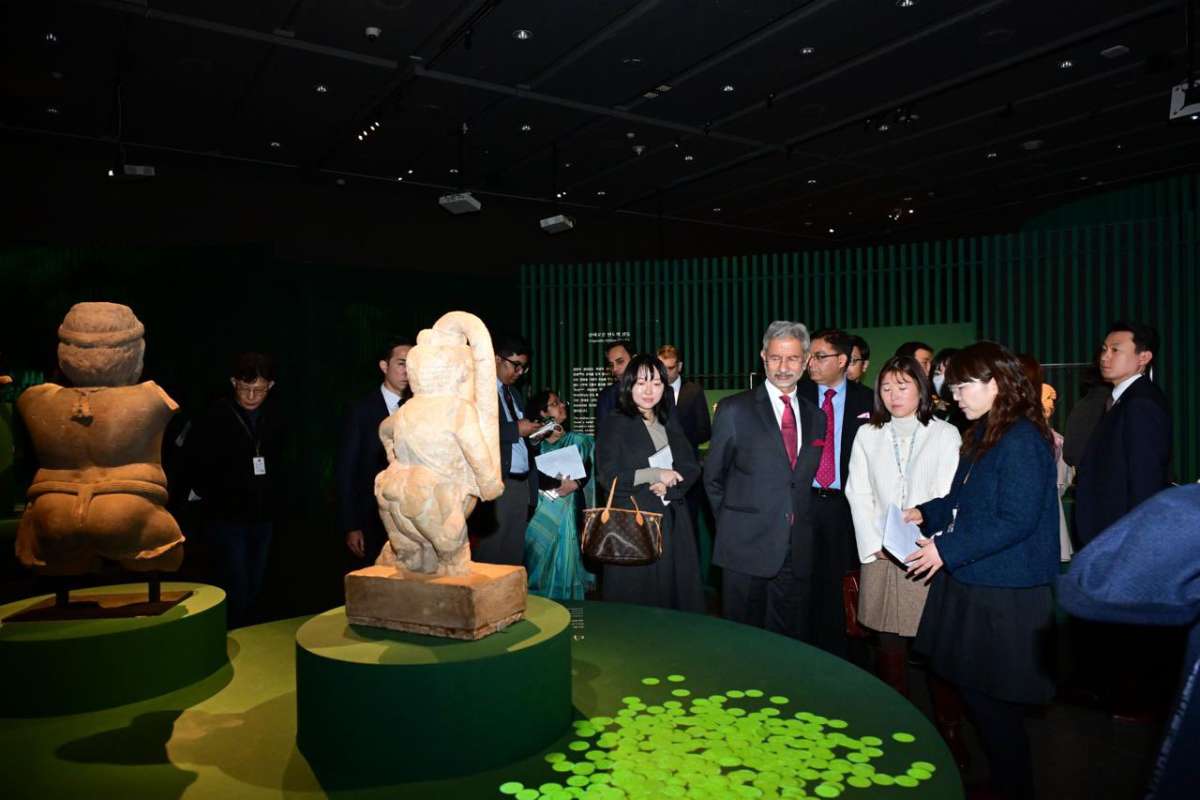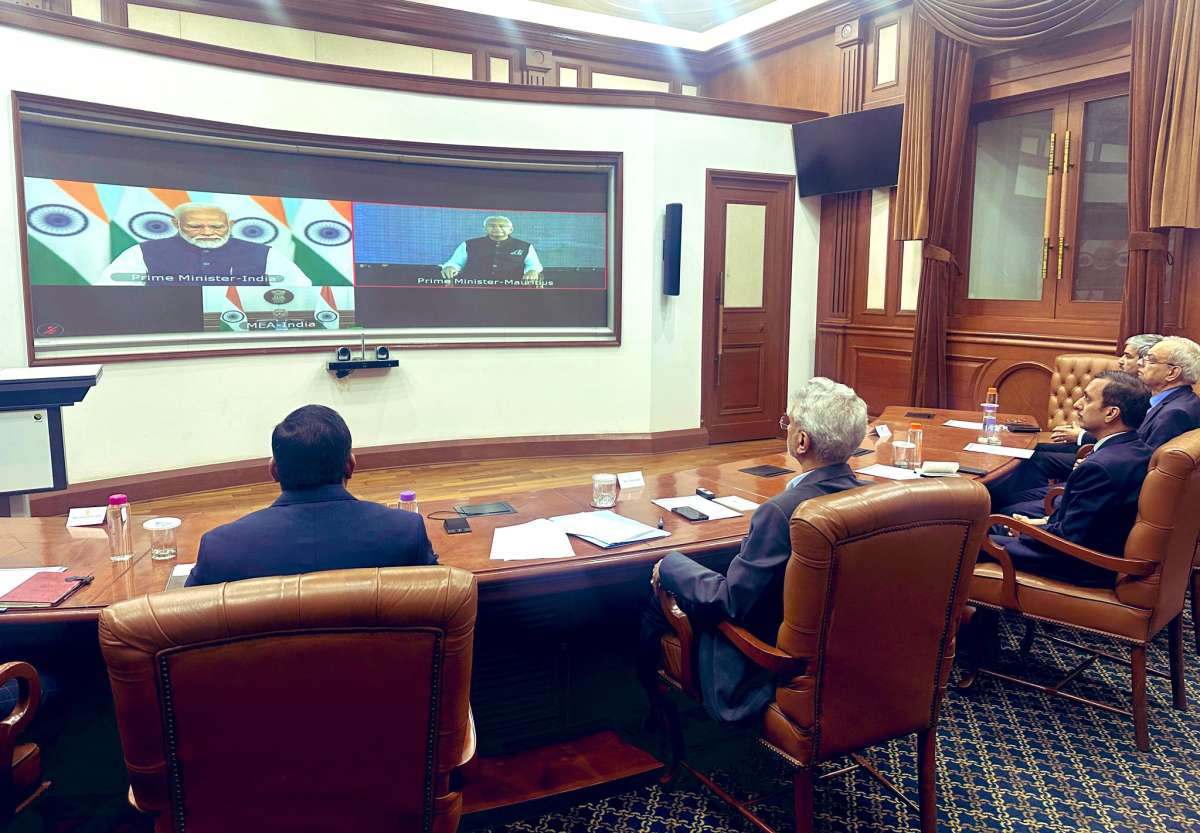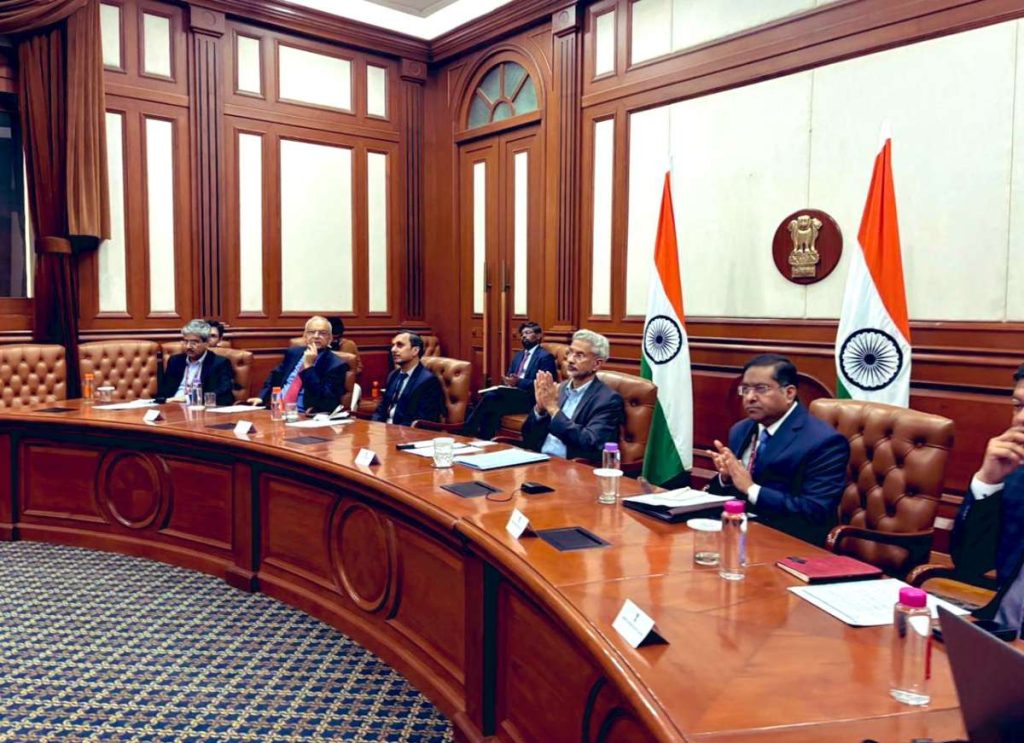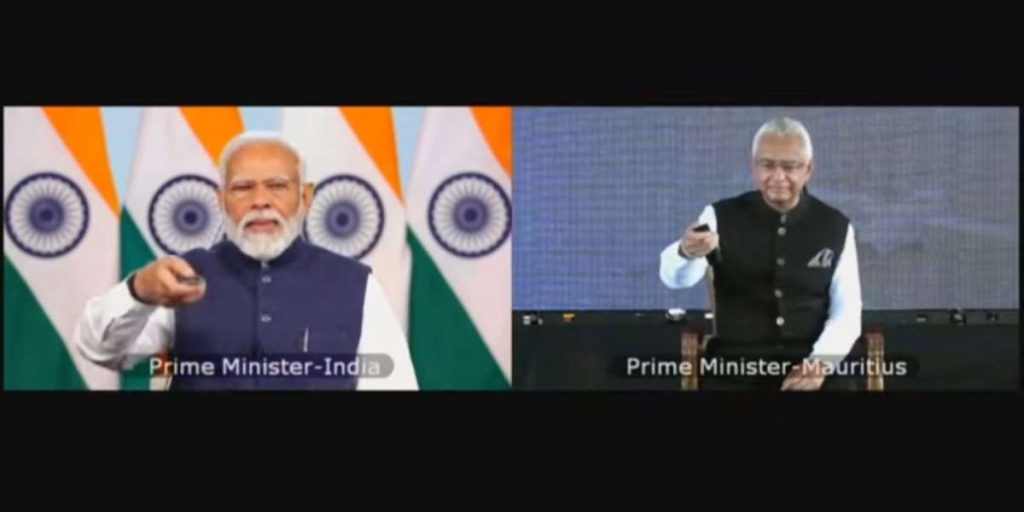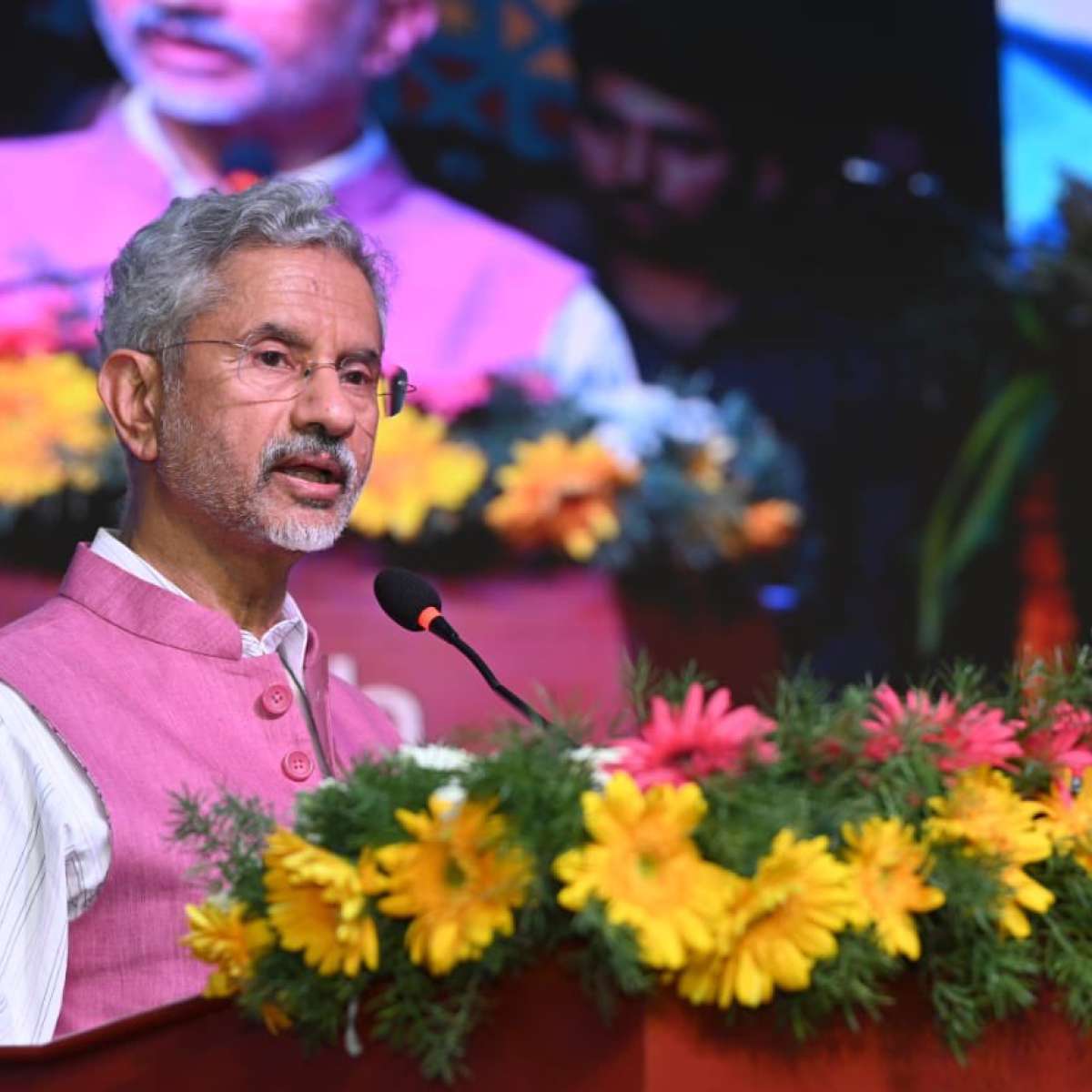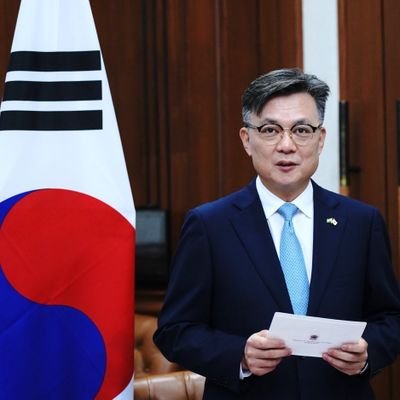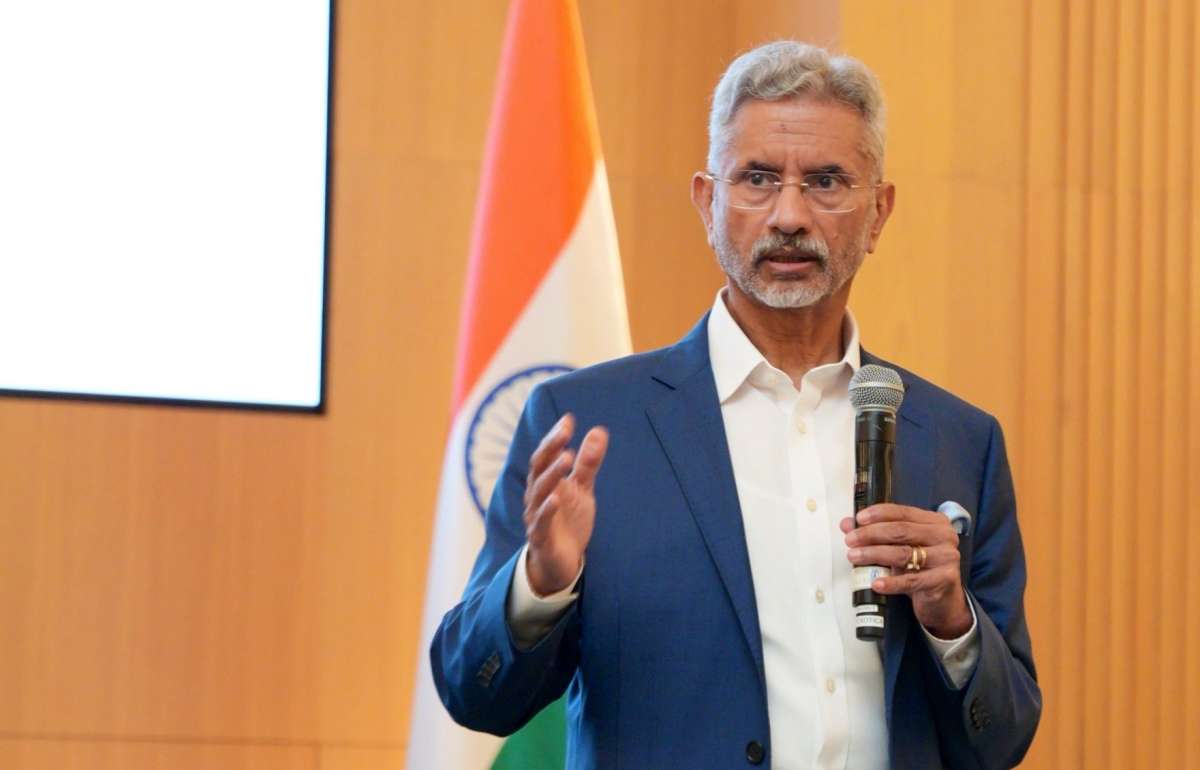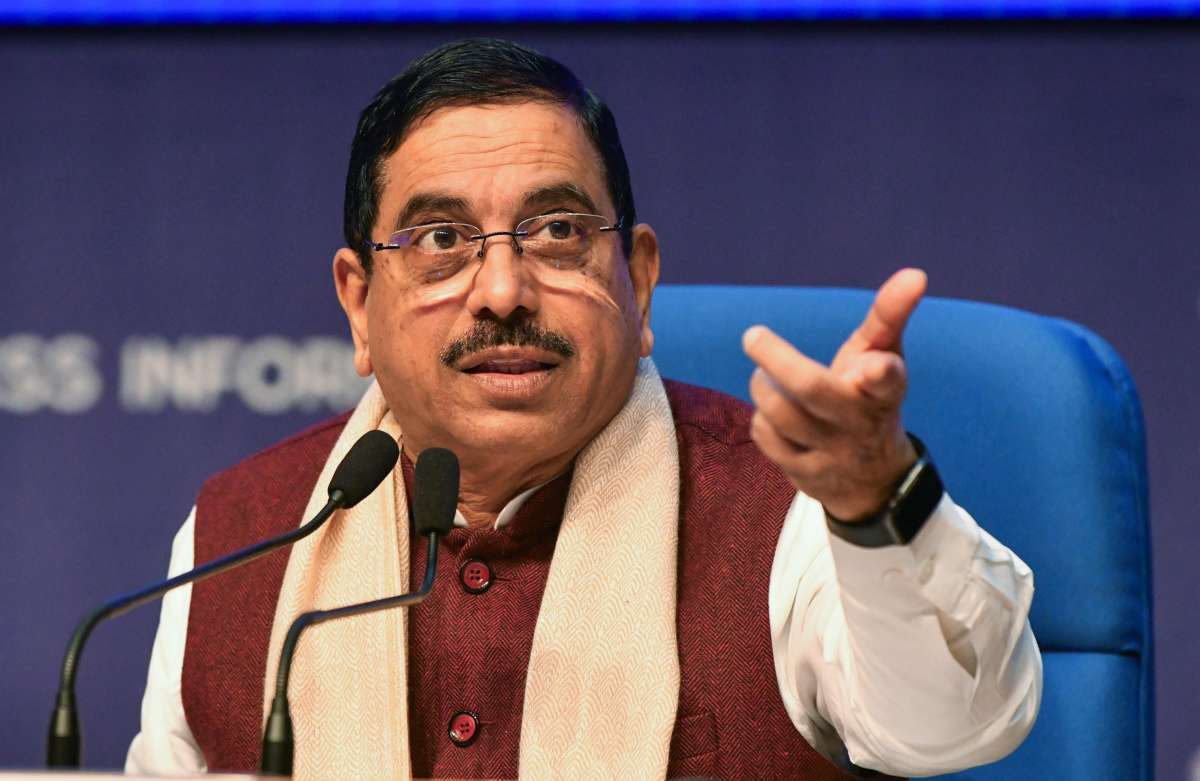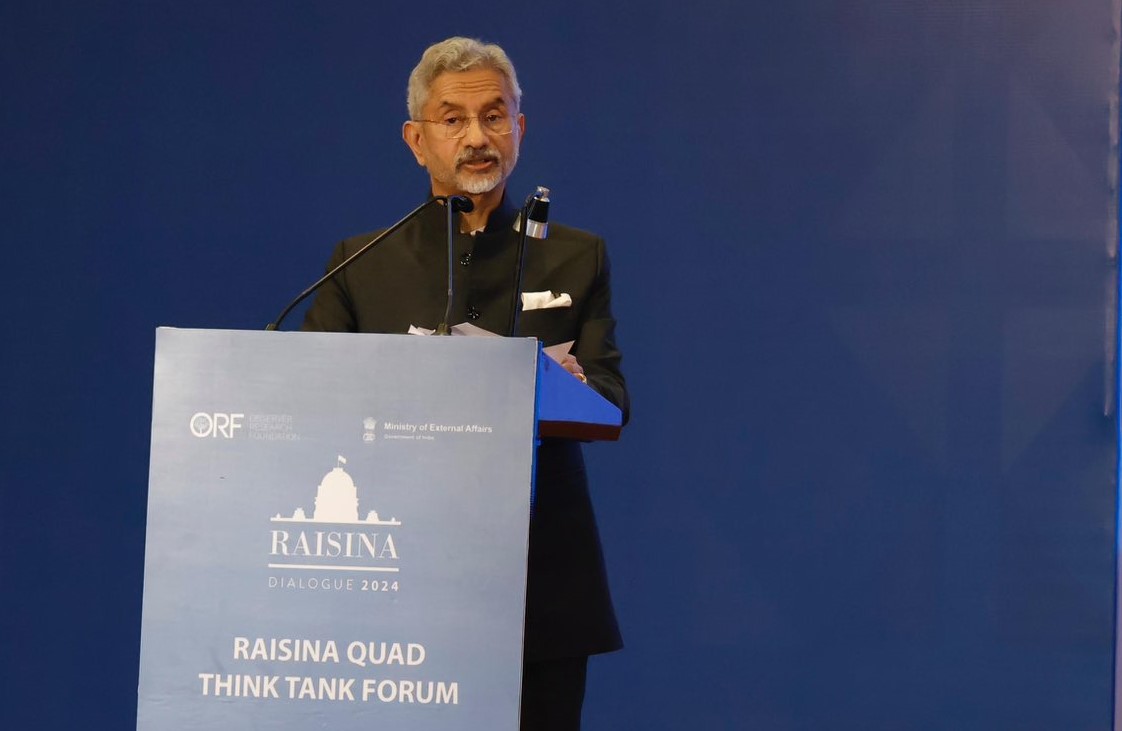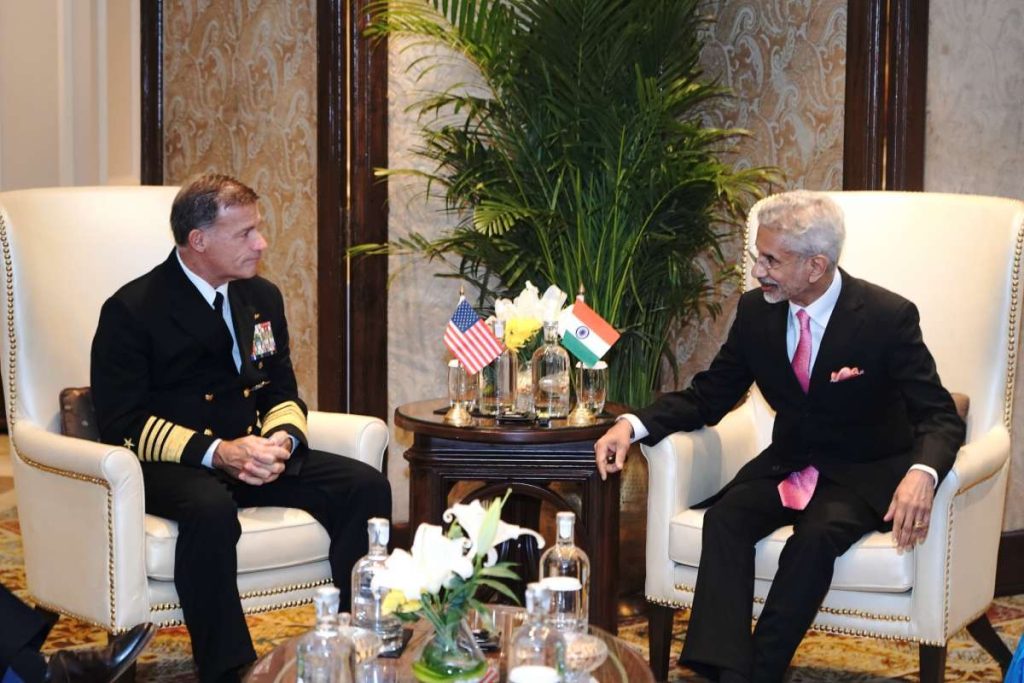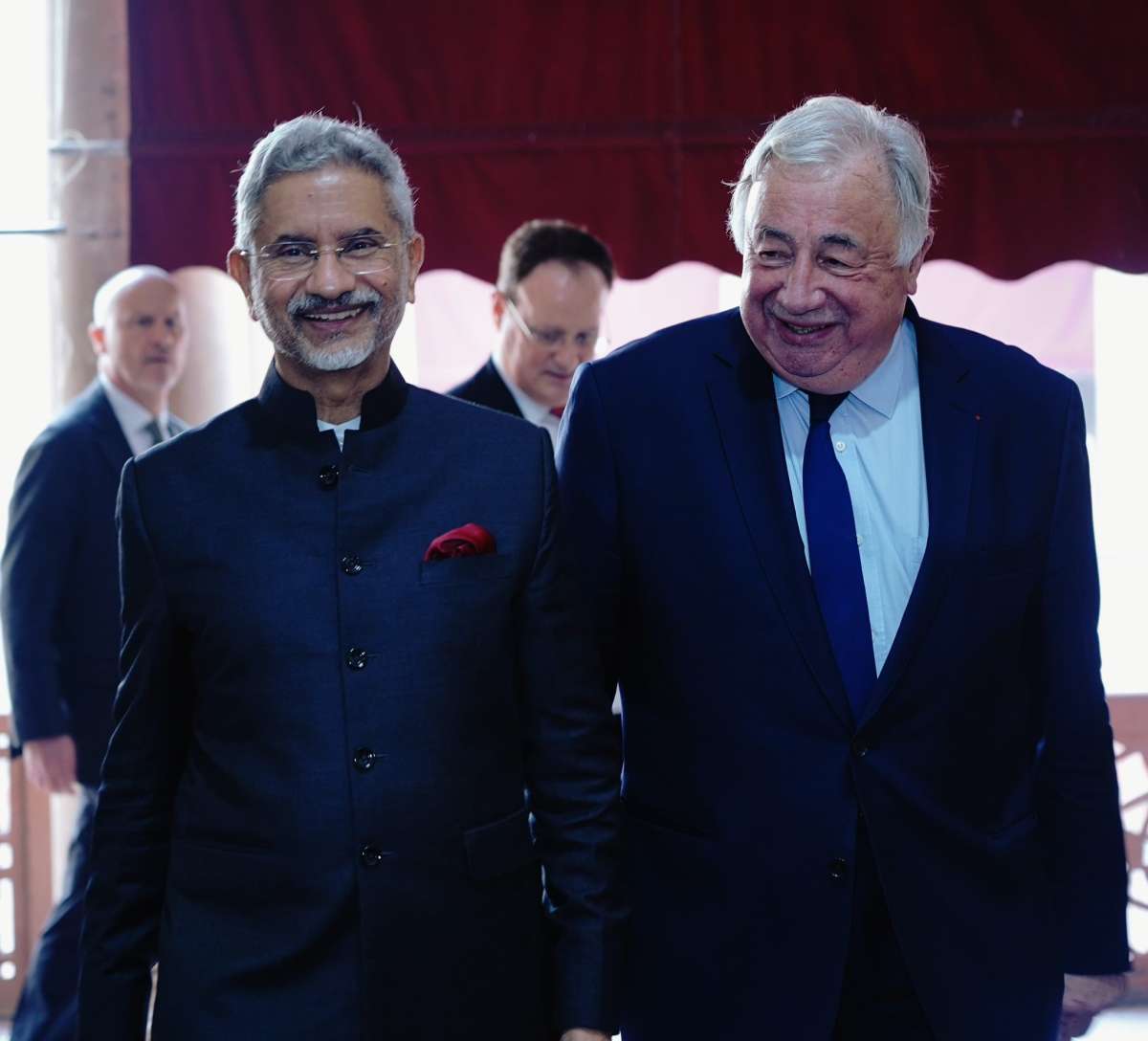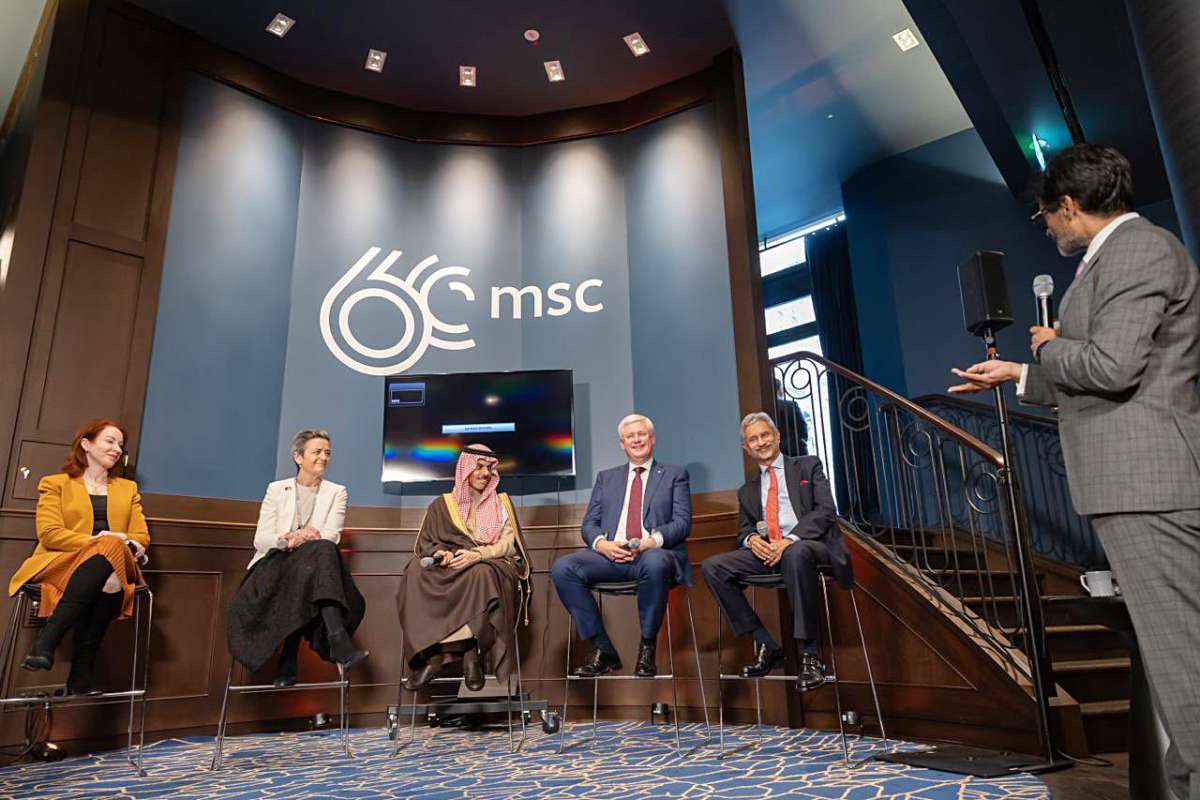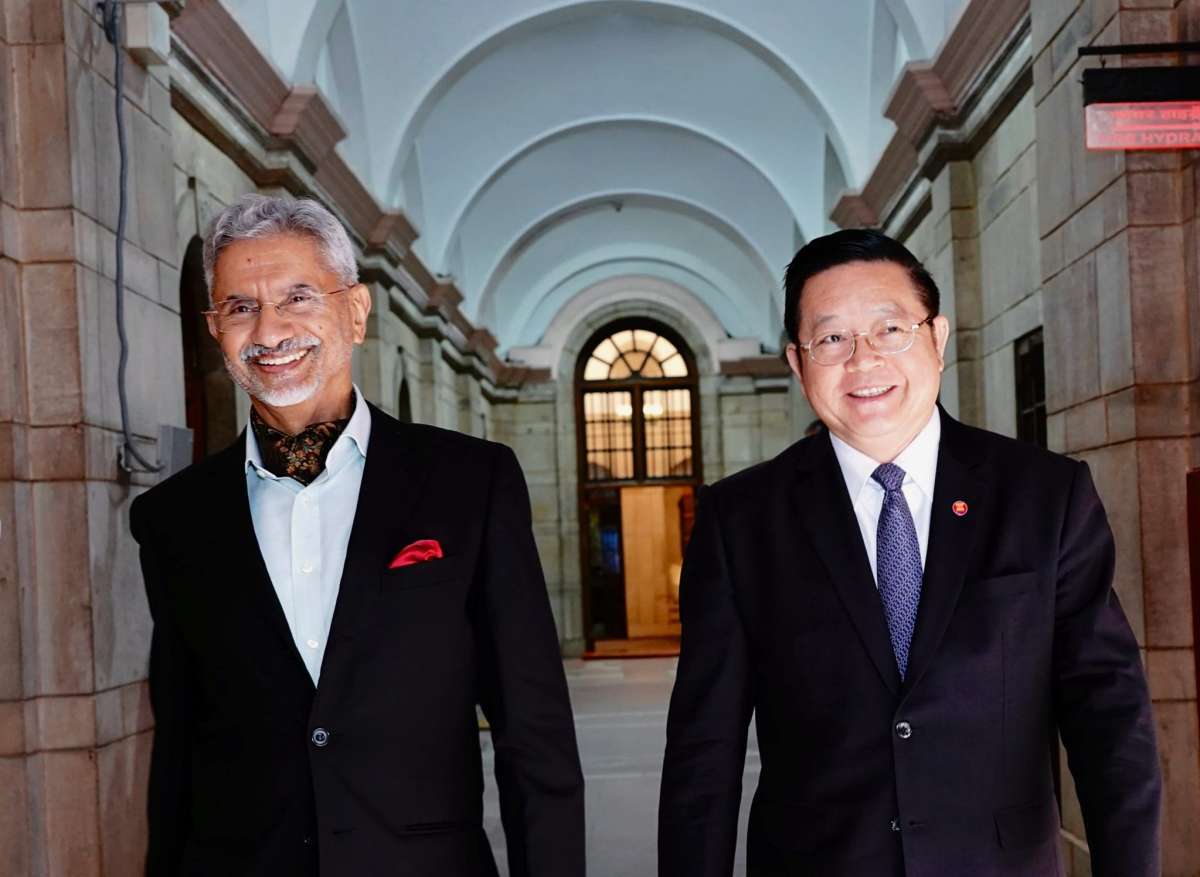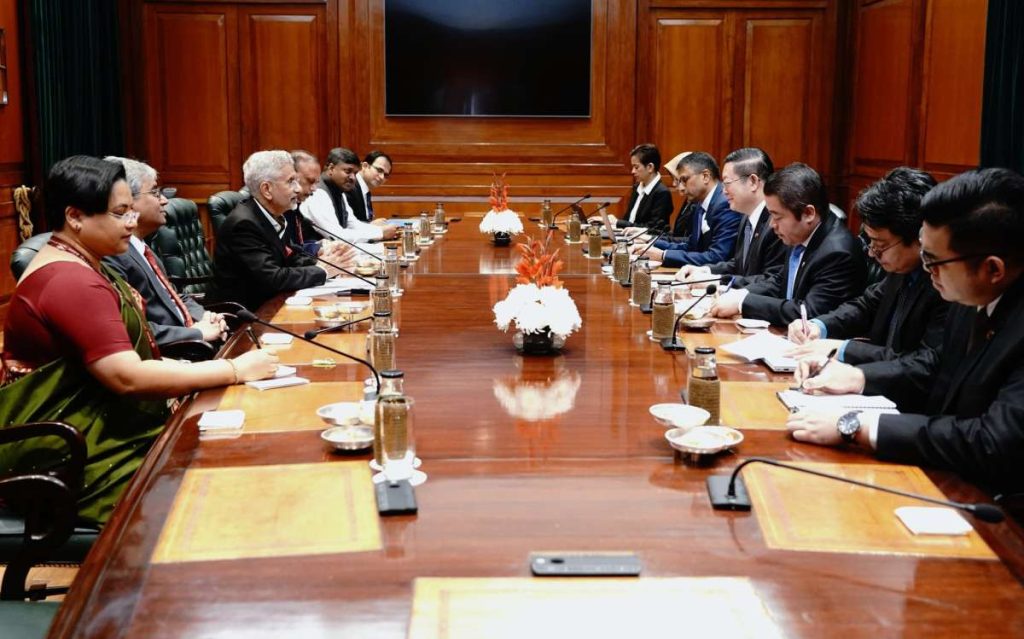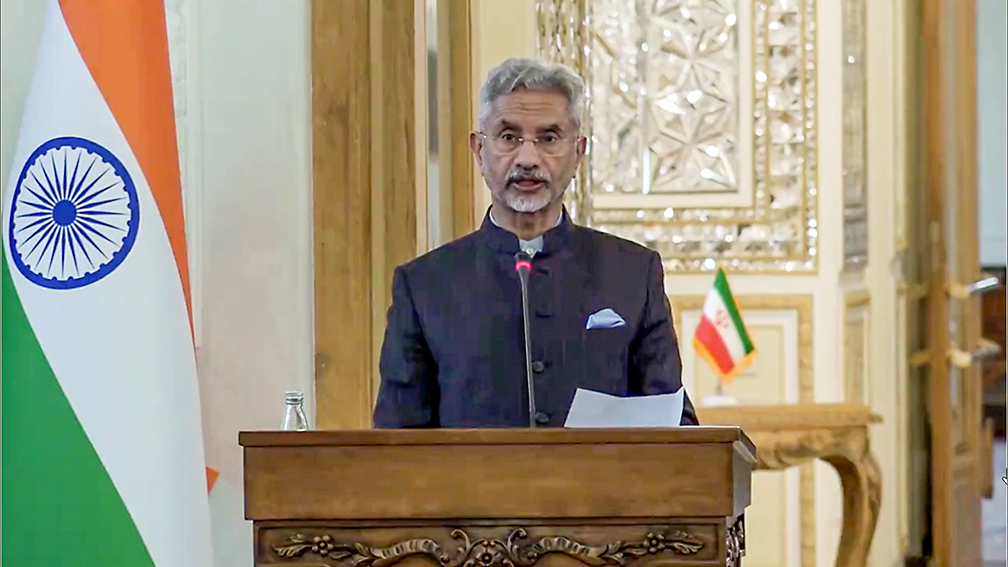Reiterating India’s support for a two-state solution, Jaishankar said that many more nations in the world now feel that a two-state solution is necessary and more urgent than before….reports Asian Lite News
Calling Hamas’ attack on Israel on October 7 an act of terrorism, External Affairs Minister S Jaishankar said that Israel should have been “very mindful” of civilian casualties in its response and emphasised its “obligation to observe international humanitarian law.”
He outlined key dimensions of the Israel-Palestine conflict so as to have a long term and a permanent solution to the issue.
Speaking at a panel discussion at the ongoing Munich Security Conference alongside US Secretary of State Antony Blinken and German Minister for Foreign Affairs Annalena Baerbock, Jaishankar said, “Well, I don’t have advice for my colleagues, though I particularly, I think all of us follow the enormous efforts which Tony (Antony Blinken) is putting in right now. But look, the way we look at it, there are different dimensions, different elements to this.
“Number one, we must be clear that what happened on October 7th was terrorism. No caveats, no justification, no explanation. It was terrorism. Number two, as Israel responds, it is important that Israel should be, should have been very mindful of civilian casualties, that it has an obligation to observe international humanitarian law,” he added.
He called the return of hostages “imperative” and emphasised the need for a humanitarian corridor to provide relief. Reiterating India’s support for a two-state solution, Jaishankar said that many more nations in the world now feel that a two-state solution is necessary and more urgent than before.
Jaishankar said, “Number three, the return of hostages is today imperative. Number four, there is a need for a humanitarian corridor, a sustainable humanitarian corridor to provide relief. And eventually, there has to be a permanent fix, a long-term fix, otherwise, we’re going to see a recurrence.”
“And I think today, suddenly, India has long believed in a two-state solution; we have maintained that position for many decades. And I think many more countries in the world today feel not just that a two-state solution is necessary, but it is more urgent than it was before,” he added.
In his remarks, Jaishankar stated that a large number of nations, particularly those in the Global South, believe that terrorism shouldn’t be justified. He said that these nations believe a two-state solution should not be delayed.
“I think a very large number of countries, especially those in the Global South, believe that terrorism shouldn’t be countenanced or justified. But they equally strongly believe that a two-state solution should not be delayed. These are not choices. These are both musts. And unless we are able to address both these issues, we are not going to really solve the problem,” EAM said.
Meanwhile, Blinken said the US is committed to Israel’s security and supports the proposition that Israel has to find ways to ensure that whatever happened on October 7 “never happens again.”
Speaking about US policy amid the Israel-Hamas conflict, Blinken said, “We’re committed to Israel’s security. That’s been clear from day one. It remains clear. And we understand and support the proposition that Israel has to find ways to make sure that what happened on October 7th never happens again. But we’ve also said and not only said, we’ve acted on the proposition, that, of course, the way Israel does that matters profoundly.”
“The way it does it in terms of trying to ensure greater protection for civilians who are caught in a crossfire of Hamas making. That’s absolutely essential. Making sure that people in need get the assistance they need. We are working on this every single day. And as we’ve seen this evolve over the last four months, things have happened as a result of our engagement, our intervention, that I would say probably would not have happened, almost certainly wouldn’t have happened without it. But it’s not enough, it’s insufficient. And that’s why we’re at it almost, literally, 24 hours a day,” he added.
Notably, the war between Israel and Hamas began after the latter launched an attack on the former on October 7, where around 1,200 Israelis were killed and around 250 taken hostage. Israel then launched a counterattack on Hamas and vowed to eliminate the terrorist group.
The Munich Security Conference (MSC) 2024 got underway on February 16 in the German capital and will conclude on Sunday. It is being held at the Hotel Bayerischer Hof in Munich, according to an official statement. (ANI)
EAM lauds Blinken’s West Asia tours
mid multiple conflicts and crises that have taken hold of West Asia, External Affairs Minister S Jaishankar on Saturday said all global partners of the US have aligned themselves and made common cause with the efforts at peace and resolution that Secretary of State Antony Blinken has been putting in through his visits to the region.
Speaking at a panel discussion at the ongoing Munich Security Conference on Saturday, Jaishankar said there was no justification for the ‘terrorism’ that was unleashed on the kibbutzes of southern Israel on October 7, last year.
“All of us follow enormous efforts which Tony (Antony Blinken) is putting in right now,but look the way we look at it has different dimensions, different elements to this,” Jaishankar said.
“We must be clear that what happened on October 7 was terrorism. No justification, no explanation, it was terrorism,” the EAM added.
The panel discussion, of which Jaishankar, Blinken and Baerbock were a part, was moderated by Roula Khalaf, the editor of the Financial Times, London.
As the discussion went on, Jaishankar underscored the urgent need for a sustainable, humanitarian corridor.
“As Israel responds, it is important that Israel… should have been very mindful of civilian casualties, that it has an obligation to observe humanitarian law,” Jaishankar said, adding that “the return of hostages is today imperative,” the EAM said, adding, “There is a need for a humanitarian corridor…a sustainable humanitarian corridor to provide relief.”
Blinken said the US has been committed to Israel’s security from ‘day one’.
“First, we are committed to Israel’s security, that has been clear from day one. And, we understand, and support the proposition that Israel has to find a way to make sure that, what happened on October 7 never happens again,” Blinken said.
“But, we have also said, and not only said, we have acted on the proposition, that the way Israel does that matters profoundly,” he addded.
The State Secretary further highlighted how multiple diplomatic engagements from the US side have resulted in getting a lot of things done, even as the Israel-Hamas war evolved in the last four months.
“…In terms of trying to ensure protection for civilians who are caught in the crossfire of Hamas’ making…that is absolutely essential— making sure that people in need get the assistance that they need, we are working on this every single day,” Blinken said.
“And, as we have seen the war evolve over the last 4 months, things have happened as a result of our engagements, I would say probably would not have happened..almost certainly would not have happened without it, but it is not enough…and that is why we are at it, almost 24 hours a day,” he added.
ALSO READ: Second UAE aid ship arrives at Al Arish Port
